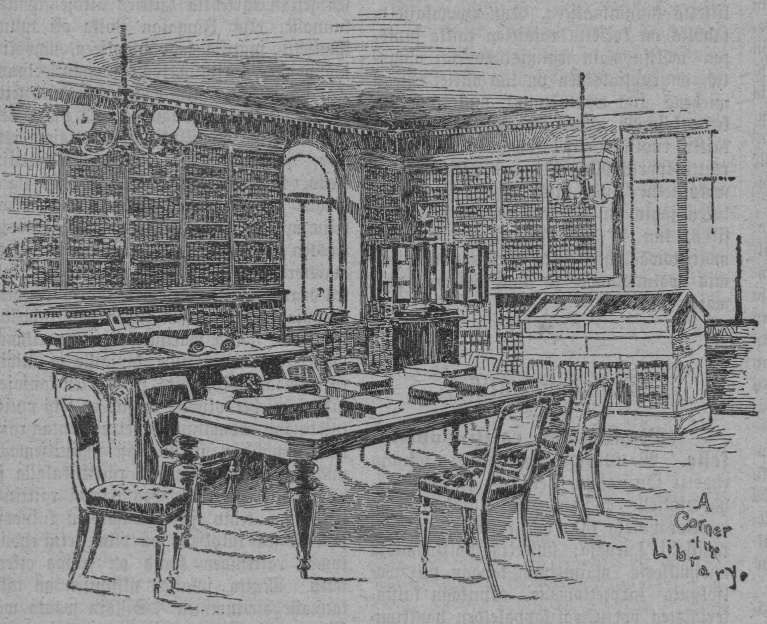During recent Liber-seminar, libraries working with the Digital Humanities topics had a joint workshop. Based on the storify storyline below, there were presentations about the current state of digital humanities to the future. British Library’s extensive collections and Norway’s case of having all books digitized were presented among others who have personnel in R&D and various kinds of digitization projects ongoing. It seems that DH is finding its spot in the libraries and enables collaboration between researchers to deepen. It is possible to monitor the work group work via the homepage of the group in the Liber website.

Kylväjä, 29.09.1897, nro 39, s. 5 http://digi.kansalliskirjasto.fi/aikakausi/binding/908782?page=5 Kansalliskirjaston Digitoidut aineistot
From the National Library of Finland side, there has already been long tradition in collaboration with the researchers, which comes from the logical set-up near the universities by providing electronical access to the materials. There is a DH-policy, which states the prime directives with which, DH is developed within the library and which works together with the digitization objectives.
Research Libraries of UK (RLUK) report
RLUK also just launched a report investigating DH in libraries, which can be found in full as pdf [1]. They refer to Schlosser (Mackenzie & Martin, 2016, p. xiv), that
the term digital scholarship comprises ‘research and teaching made possible by digital technologies, or that takes advantage of them to ask and answer questions in new ways’ [2]
and quite logically in results the libraries saw that the DH was part of the digital scholarship. When asked what kind of activities libraries do in order to support DH, there were mentioned museums and cultural heritage related research (22 respondents) but next items after that were digitisation (20) and text&data mining (20), but the range of the libraries was broad, and there were 3D modelling and digital pedagogy also mentioned from the other side of the spectrum. Libraries service role was utilized mainly via provider of data, however, even more popular was “ad-hoc support” for the DH scholars and students.
All in all
So, as it can be seen, there is development for the DH in multiple fields. Besides the libraries efforts, researchers themselves have projects and research goals aiming to tackle the research questions of interest. Probably due to the mutual collaboration needs, there will be ever more collaboration between the two, as libraries can offer the persistent and permanent support line for content and digitization, which can be something to pick up when a new project appears. Communication and both informal and formal networks become even more important in the globalized world, where the research interests can span across several libraries and require combining multiple sources. So, not just collaboration towards research is essential, but also across memory sector to find common ground and best practices, which can be adapted in each individual situation.
References
[1] Kamposiori, C. (2017). The role of Research Libraries in the creation, archiving, curation, and preservation of tools for the Digital Humanities. RLUK Report. http://www.rluk.ac.uk/wp-content/uploads/2017/07/Digital-Humanities-report-Jul-17.pdf
[2] Mackenzie, A. and Martin, L. (2016). Developing digital scholarship: emerging practices in academic libraries. London, UK: Facet Publishing.
